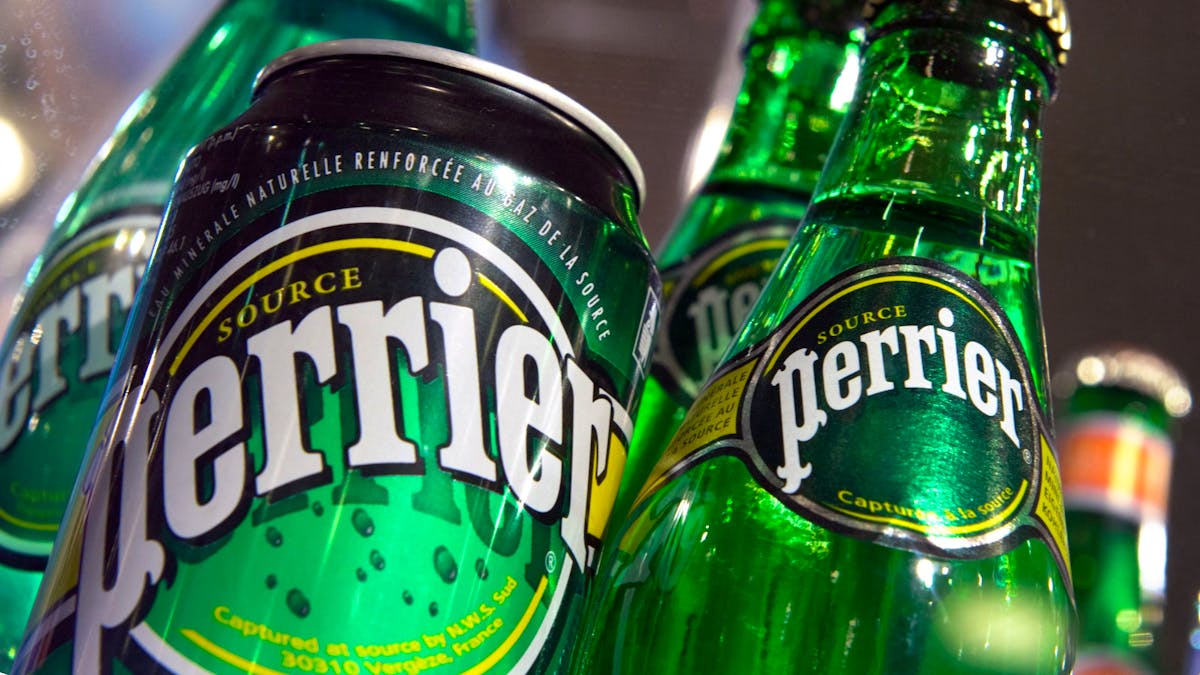New contaminations have been detected in the bottles of the Gard Perrier factory, but it is not a “borehole contamination”, the parent company Nestlé Waters said on Friday, while the department’s prefecture must soon decide on the future of the site.
According to information from Radio France published Friday, around 300,000 bottles of 75 centilitres of Perrier produced on the Vergèze site, in the Gard, were considered on March 11 as contaminated by “pathogenic (enterobacteria)” bacteria “following internal control.
Contacted by AFP, Nestlé Waters, a group to which the Maison Perrier brand belongs, has not confirmed this figure.
But the company confirmed that certain bottles had been blocked in its warehouses “for, either a quantitative surpassing of the natural flora of mineral water (non -pathogenic) or following a technical intervention which caused an anomaly”. Part of these bottles was released on Friday by the Regional Health Agency (ARS) in Occitania, said Nestlé Waters.
The group has also confirmed the cessation of a production line.
According to Radio France, the contaminations were reported at ARS ten days after their detection. An “unusually long information period,” said Nestlé Waters with AFP.
“Hundreds of thousands of other bottles of 50 centilitres are also blocked due to the presence of an excess of revivable germs, possible indicators of bacteriological contamination,” the public media wrote on Friday.
For Nestlé Waters, these are classics “quality management process (which) work and guarantee food safety (of) products”. The bottles concerned were therefore not put on the market.
In April 2024, three million Perrier bottles had been destroyed as a precaution because they are contaminated by bacteria.
Regarding the problems reported on Friday, it is “in no way contamination of drilling,” said the manufacturer, defending his Vergèze factory, on the exploitation of which the prefect of Gard Jérôme Bonet, must soon decide. Perrier’s “Natural Mineral Water” name is at stake.
In early April, hydrogeologists mandated by the French state made an “unfavorable opinion” for the production of the famous sparkling water under this name.
For several months, the water subsidiary of the Swiss giant of the agrifood Nestlé has been the subject of a controversy concerning its use, in the past, of treatment of disinfection of its waters, not dangerous but prohibited for natural mineral waters.
A senatorial commission of inquiry, set up in November, led a hundred hearings for four months to shed light on the practices of bottled water industrialists. His report will be rendered on May 19.
Regarding the Vergèze factory, the repression of frauds (DGCCRF) seized justice under article 40 of the Code of Criminal Procedure (which provides that any administration having knowledge of practices that can be an offense or crime is required to report it to the prosecutor), confirmed to AFP the Paris prosecutor, to which judicial information had been open.

